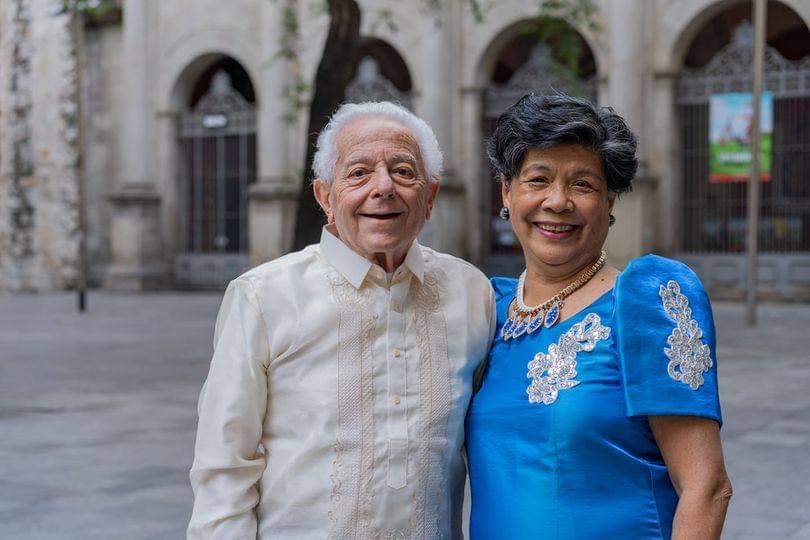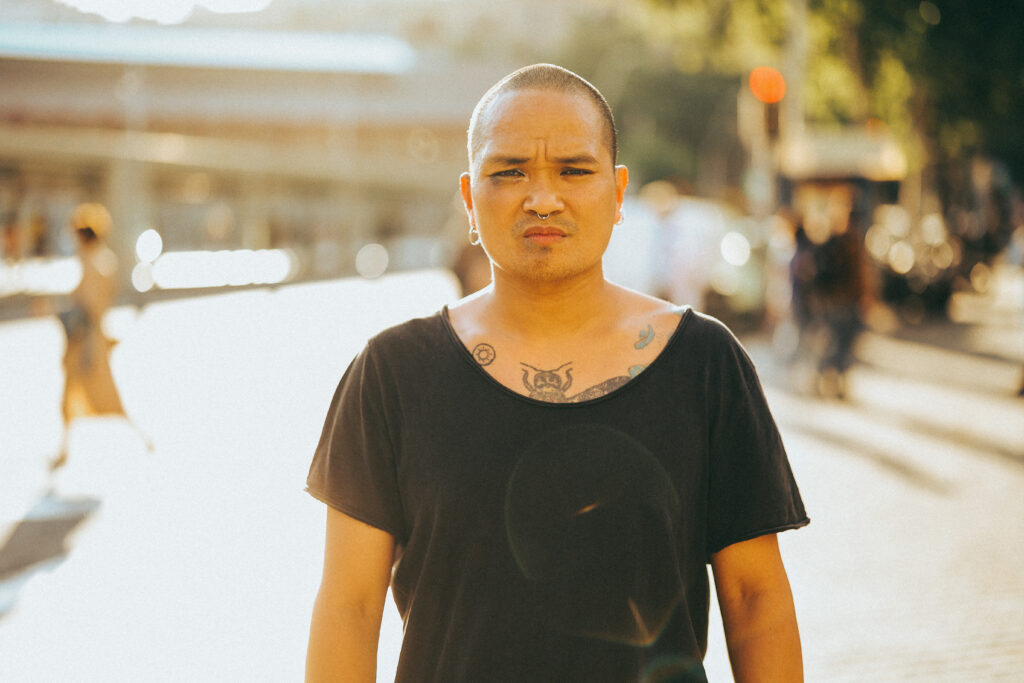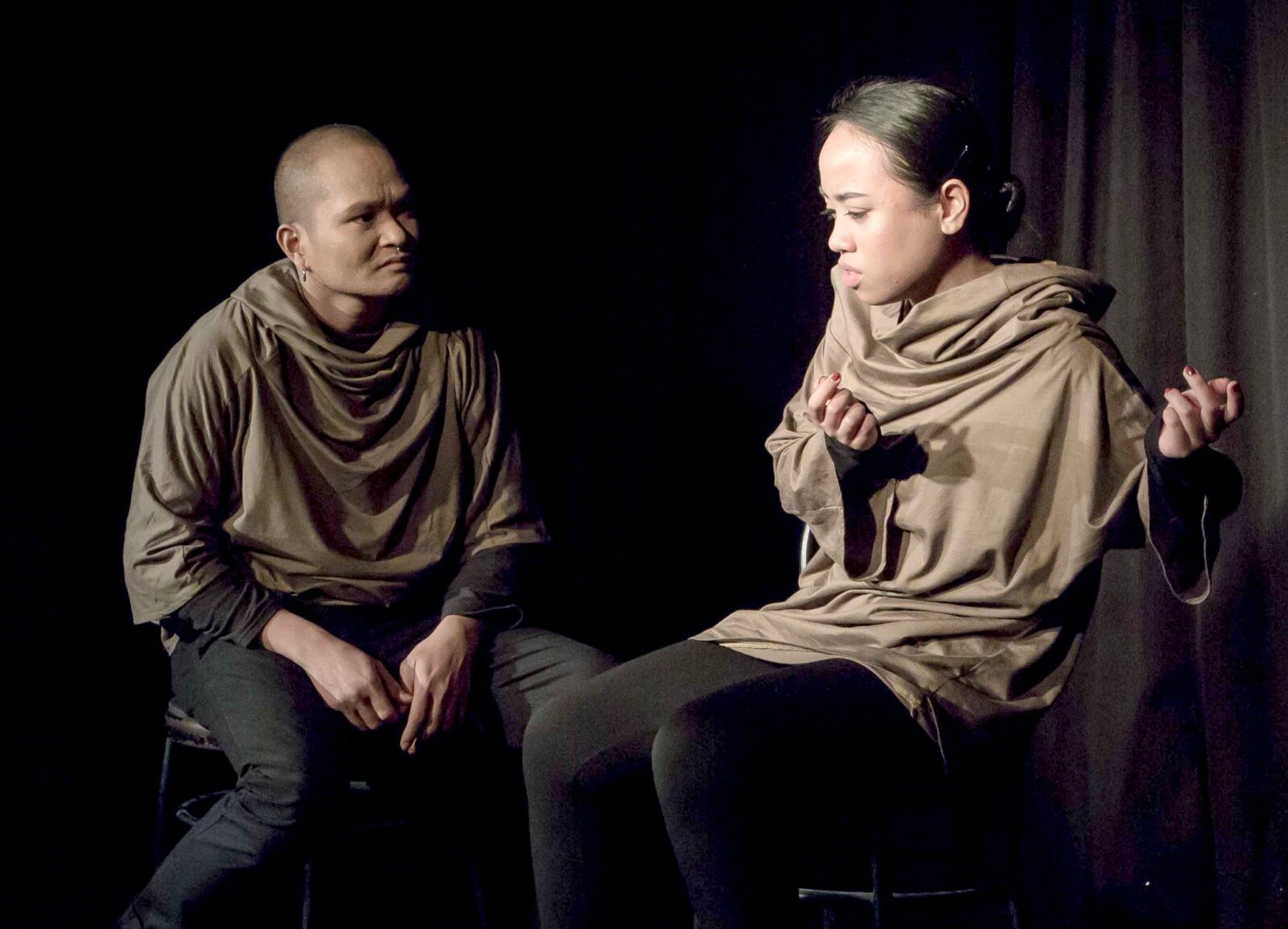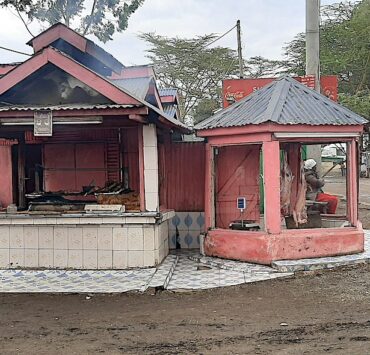Director Berjer Capati’s first foray into theatre traces the history of Filipinos in Barcelona, from seamen who jumped ships to domestic helpers in rich households, and aims to unhide the hidden Filipinos in the city.
Tago, Filipinos en Barcelona is independent director Berjer B. Capati’s first foray into theater. Written and directed by Capati himself, Tago was originally a cultural route showing the lives of Filipinos in Barcelona. In 2018, Tago was part of Casa Asia’s Rutas Culturales, a walking tour around Barcelona. Capati was given carte blanche to create a Filipino route.
“I thought the easiest way to do that is through film.”
Until he met one Macrina Alcedo, a Filipina migrant who started her life in Barcelona as a domestic helper and the unofficial keeper of the history of the migration of Filipinos to Barcelona.
“She was very theatrical. I was awed. I have to tell her story I said. And this has to be a play.”

With Alcedo as the muse, Capati proposed a route focusing on the Filipino food and the history of Filipinos in Barcelona. Casa Asia gave him the green light to proceed. The walking tour would go from one Filipino restaurant to another, where an act would be played in each restaurant, each act telling a piece of Filipino history in the city.
A play with four acts
Capati first wrote Act 2, a monologue by an older Filipino woman remembering her life as a Filipino domestic worker for the Catalan bourgeoisie. “That was really quick because all I had to do was remember everything that Tita Macrina told me.”
Act 1 began the narrative through the conversation of two Filipino seamen who jumped ship, now living in the city without legal documents. It also showed how Father Avel dedicated his life to helping Filipinos in Barcelona.
For Act 3, Capati drew heavily from his experience as a Filipino living in Spain and the discrimination he experienced.
“For the last act, I needed to write about the future of the Filipinos in Barcelona, about the clash between people who were born here and those who were displaced.”
Tago and the Filipino Rutas Culturales sadly had a short life.
“We only did four shows with Casa Asia. Three years later, I need to do this again.”
In 2020, Capati set out to launch Tago, Filipinos en Barcelona, subsidized by the Catalan government to produce the play, this time with an all-Filipino cast.

“One mistake I did at that time, was white washing. I hired Spanish actors. I had an excuse, maybe, but it’s not enough. I just arrived in Barcelona from Madrid. I didn’t know anyone.”
Pandemic obstacles
Starting a project amid a pandemic presented difficulties. This included finding actors, doing the administrative work and rehearsals online, and the closing of city borders. To top it off, Capati had to learn acting in two weeks. Capati had to take on the role of the actor who was let go.
Despite the obstacles, Capati decided to keep going because he had to use up the government grant. Tago, opened on January 7, 2021, in Café Teatre Llantial, in Raval, a barrio in Barcelona, often called the Pinoytown.
On opening night, Capati was worried about the limitations imposed by the government due to COVID-19. The comarcas were sealed off during the weekends and Macrina Alcedo lives outside Barcelona. Capati had to give her a “special role” for the opening night so she could justify crossing the comarca border. Capati thought that no one would up because of the pouring rain and the people were afraid of indoor gatherings. Ten minutes before the show, all designated seats had been taken.
“Unhiding” the Filipinos
Capati believes that Tago will give Spaniards the opportunity to see the Filipinos living in Spaininstead of just looking through them, to understand who they are, where they come from and what they do. For him, Filipinos in Spain need to have a voice.
“We can’t stay in the background, otherwise we’re going to stay marginalized. It is time for us to be in the picture too. We must not forget where we come from. We cannot run away from it by living in a privileged, white world. It is ugly, but that is what makes you different. That difference will guide you on how far you can go.”
Director Berger Capati.

“It’s ok if we decide to stay in the margin – but let it be a choice not an imposition. And having a voice is…that’s when someone starts to say ako naman, I want to be here, I want to say something. Hindi lang mako nandyan.”
After 8 shows, Tago’s is taking a break. “I’m giving it the whole year of 2021 to run its course.” said Capati.
In the meantime, Capati’s back to his first love, filmmaking. “I really want to go back to filmmaking, and I have already written a script for a short film.
As for the woman who started the spark, Macrina Alcedo has only this to say, “It is an honor to have inspired Berjer to do this project. It was such a moving play and I´m happy and proud to be part of it.”
This article was first published in the Summer 2021 Issue of the Filipino Expat magazine.
What's Your Reaction?
Patricia Ann Bello is freelance writer based in Manila, Philippines. An avid reader with an enormous TBR pile, her Instagram page @patandpages is dedicated to her love of reading. She keeps a day job as a banker and juggles being a wife and a mother to two boys while she indulges her passion for reading, writing, and traveling.




